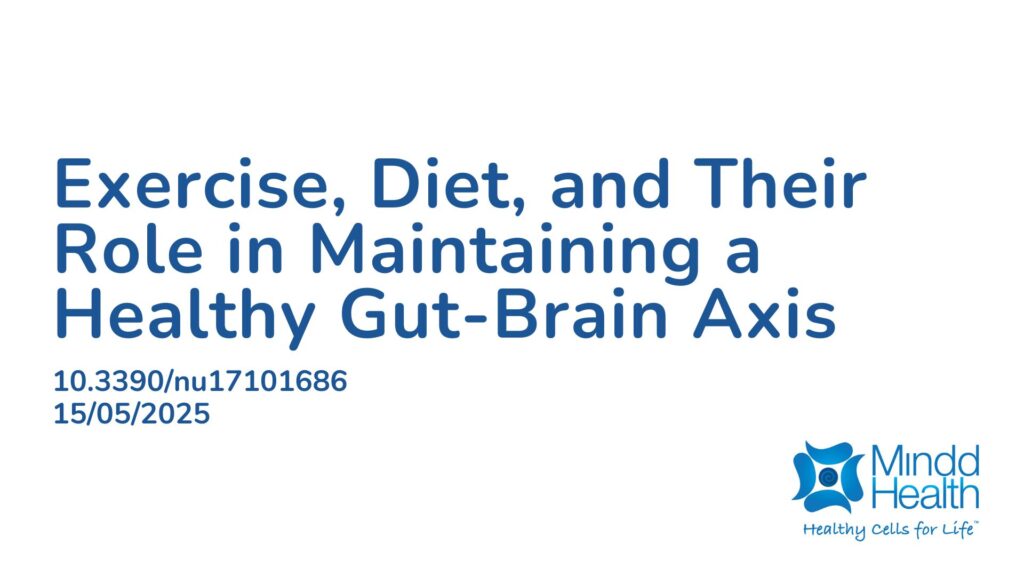Summary:
The gut microbiota influences many body functions, including immunity, metabolism, and brain health, and the gut-brain axis connects gut microbes with cognitive and emotional processes. An imbalanced gut microbiome may contribute to psychiatric and neurological disorders, while a healthy, diverse microbiota supports the gut barrier and reduces inflammation. Exercise positively affects gut microbiota by increasing beneficial bacteria that produce short-chain fatty acids, which strengthen the gut lining and reduce inflammation. Exercise also benefits brain health by improving cognition, neurogenesis, and reducing neuroinflammation, possibly through changes in gut microbes. Studies show exercise-induced microbiome shifts improve memory and brain function, and that modern diets high in processed foods disrupt gut microbiota and increase disease risk. Healthy diets rich in fiber and fermented foods support beneficial microbes and brain health. This review explored moderate exercise benefits on gut and brain health via the gut-brain axis and found that the gut microbiome and physical exercise influence each other. Moderate exercise helps strengthen the gut lining, balance gut bacteria, and increase good bacteria produced by microbes. The gut microbiome also affects mood, helping reduce stress and anxiety, and may support brain health. Eating a healthy diet can also change the gut microbiome and support brain health. For example, compounds called polyphenols can lower brain inflammation by affecting gut bacteria. Since the gut microbiome changes quickly in response to diet and exercise, controlling these factors will be important for future research.
Abstract:
The existing body of evidence has highlighted gut microbiota as a versatile regulator of body wellness affecting not only multiple physiological metabolisms but also the function of remote organs. Emerging studies revealed a reciprocal relationship between physical exercise and intestinal microbiota, suggesting that physical exercise could enhance gut health, including regulating intestinal barrier integrity, increasing microbial diversity, and promoting beneficial microbial metabolism. Furthermore, the beneficial outcomes of exercise on the intestine may also promote brain health through the gut–brain axis. Diet is an important factor in boosting exercise performance and also greatly impacts the structure of gut microbiota. Abundant research has reported that diet alongside exercise could exert beneficial effects on metabolism, immune regulation, and the neuropsychiatric system. In this paper, we used a narrative review, primarily searching PubMed, Web of Science, and Elsevier, to review the existing research on how moderate-intensity exercise promotes gut health, and we introduced the effects of exercise on the nervous system through the gut–brain axis. We also proposed dietary strategies targeting the regulation of gut microbiota to provide guidelines for boosting brain health. This review highlights that moderate exercise and a healthy diet promote gut and brain health.
Article Publication Date: 15/05/2025
DOI: 10.3390/nu17101686



